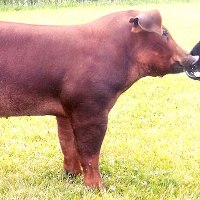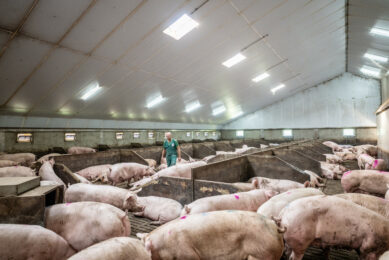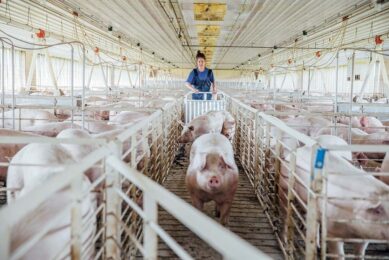Research: alternatives to unsedated castration

A new research into alternative methods for unsedated castration of male piglets has been started at Wageningen University and Research Centre (WUR), the Netherlands.
The announcement was made public at a boar taint conference in Wageningen.
The research focuses on a short-term solution as sedated castration, by use of carbon dioxide (CO2), but also on what is called a ‘long-term solution’ of genetical selection.
This genetical selection should make castration superfluous altogether.
Pig smell
Without castration, approximately 5 to 10% of the pigmeat from male pigs is spreading out a specific unpleasant smell.
For that reason, castration is necessary. As from 2004, the Netherlands are looking for a solution for the castration issue.
Unpopular
Negative aspects about sedated castration, such as injection pains and costs, cause sedated castration to be rather unpopular.
For that reason, a method using low concentrations of CO2 for sedation – both painless and relatively cheap – will be assessed. As far as the university knows, this method has never been used or tested anywhere in the world.
Long term
For the long term, a boar taint solution should be found in a combination of genetical selection, slaughter line detection and adapted feeding and housing, the university believes.
The university’s Animal Sciences Group (ASG) is working on several methods possibly enabling the removal of boar taint.
Gene
The group discovered a gene that is important in the production of boar taint. Within a year, it is expected, it should be clear whether the gene has several varieties.
A second method uses new technologies enabling scientists to use these varieties entirely.
Related websites:
• Wageningen University and Research Centre
• Animal Sciences Group
For the latest pig news, subscribe here











